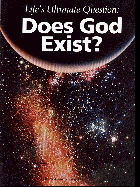|
| HOME |
ARTISTS
BLAKE / CEZANNE LEONARDO / DELACROIX DURER / INGRES MICHELANGELO / RENOIR REMBRANDT / RUBENS
MUSICIANS
BACH / BEETHOVEN MOZART / HANDEL / HAYDN LISZT / MAHLER / PUCCINI RACHMANINOFF/SIBELIUS VIVALDI
PHILOSOPHERS
BACON / BARTH / BERGSON DESCARTES / FICHTE HEGEL / HUME / KANT KIERKEGAARD / LEIBNIZ MARITAIN / MILL / PASCAL ROUSSEAU / WEIL WITTGENSTEIN
SCIENTISTS
COPERNICUS / BRAHE EINSTEIN / FARADAY GALILEO / KEPLER NEWTON / PASTEUR / NOBELISTS / OTHER SCIENTISTS
WRITERS
BAUDELAIRE / BRONTE BROWNING / CHECKOV CHAUCER / DANTE DICKINSON / DONNE DOSTOEVSKY / ELIOT FRANKLIN / GOETHE / KAFKA / LOWELL / PUSHKIN / SHAKESPEARE / TOLSTOY
|
GALILEO |
|
|
|
“As to
the truth, of which mathematical demonstrations (Burtt, 1951, 72)
“May it be our lot, by the
grace of the true Son, pure and immaculate, to learn from Him, with all other truths, that
which we are now seeking.”
(Poupard, 1983, 42)
“God could have made birds
with bones of massive gold, with veins full of molten silver, with flesh heavier than lead
and with tiny wings . . .
(Ibid., 99)
“I therefore conclude,
that our knowledge . . . is separated from the Divine knowledge by an infinite
interval.”
(Poupard, 101)
“When I reflect on so many
profoundly marvelous things that persons have grasped, sought, and done I recognize even
more clearly that human intelligence is a work of God, and one of the most
excellent.” (Poupard, 101) “To me the works of nature and of God are miraculous."
(Brunetti, 1964,
506)
“To the Lord;
whom I worship and thank;
That governs the
heavens with His eyelid
To Him I return
tired, but full of living.” (Chiari, 1970, 321) “One must not doubt the possibility that the Divine Goodness at times may choose to inspire a ray of His immense knowledge in low and high intellects when they are adorned with sincere and holy zeal.” \
(Chiari, 545)
“I trust the infinite goodness
of God may direct toward the purity of my mind a small amount of His grace that I may
understand the meaning of His words.”
(Chiari, 550)
“The Holy Scriptures
cannot lie.” (Chiari, 558) ___________________ Burtt, E. A. The Metaphysical Foundations of Modern Science. New York: The Humanities Press Inc., 1951. Poupard, Cardinal Paul. Galileo Galilei. Pittsburgh:Duquesne University Press, 1983. Chiari, A. Galileo Galilei, Scritti Letterari. Florence: Felice Le Monnier, 1970. |
|
|

